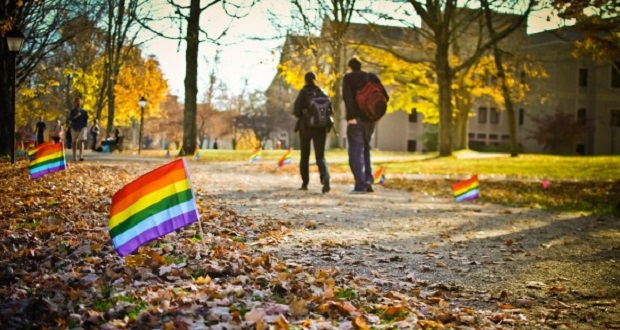
In 1983, the Supreme Court ruled to allow the IRS to revoke the tax-exempt status of universities that prohibited interracial dating. When I first read that, I thought what you might be thinking: Colleges were still banning interracial dating in 1983?
In fact, Bob Jones University, the school at the center of the Court’s landmark decision, would continue to forbid mixed-race relationships for another 17 years, essentially choosing bigotry over financial benefits, all in the name of religion. Until 2000, it had maintained policies that required dismissal of “partners in an interracial marriage,” “students who date outside their race,” and members of any group that “advocates interracial marriage.”
Maybe you’re still thinking what I’m thinking: A college was still banning interracial dating only 15 years ago?
Actually, what I’m really thinking is, What kind of students would choose to go to such a university? Probably the same people who are now waving confederate flags in support of state capitals waving confederate flags.
But that’s another blog post. This one’s about what people will be thinking decades from now about universities that discriminate against gays and lesbians. Like Bob Jones years ago, these schools, too, could lose their tax-exempt status eventually if the Supreme Court decides to legalize same-sex marriage.
Recently, 70 religious schools wrote a letter to Congress expressing fears that the government will only give them money if they allow their students to engage in homosexuality, allow employees to marry people of the same gender, allow same-sex spouses to receive benefits—you know, allow any act that will very obviously bring the downfall of the United States. If not the world.
If the end of the world brings with it greater equality, then I’m ready for the apocalypse. I hate when any group, religious or otherwise, denies basic rights to people. I don’t necessarily hate it enough to ban all discrimination, though. If you’re a church or a private college and want to ban anything LGBT-related, fine. Well, not really fine. But fine in the sense that I support your right to do so. Just don’t ask the government to give you the resources to fund initiatives that uphold inequality.
As I’ve written before, too often we treat acts in the name of religion as beyond reproach. Many people have a knee-jerk reaction that we must respect all beliefs just because they are rooted in religion. Really, though, we should respect all people regardless of religious beliefs. Or race. Or sexual orientation. We’ll get there one day. Maybe.


















